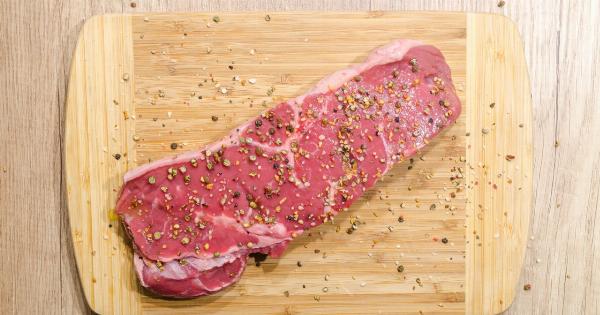There is often confusion among dog owners about whether or not it is okay to feed their dogs bones.
Some believe that dogs have always been natural scavengers and therefore, should be given bones to chew on, while others believe that feeding bones is extremely dangerous and can result in serious health complications.
Are Bones Safe for Dogs to Consume?
The truth of the matter is that bones can be both safe and dangerous for dogs to consume. The safety of bones depends on the type, size, and quality of the bone, as well as the chewing habits of the dog.
Small, brittle bones like chicken bones should never be given to dogs, as they are easily swallowed and can cause significant damage to the digestive tract. Large, raw bones, on the other hand, can be beneficial for dogs to chew on and can help in maintaining their dental hygiene and mental stimulation.
The Dangers of Bones for Dogs
While raw, large bones may be safe for dogs to consume to a certain extent, there are still dangers that come with feeding your furry friend bones.
One danger is that dogs can break off sharp pieces of the bones while they chew, which can be ingested and cause internal damage to the digestive system or the teeth. Another danger is related to bacterial contamination. Raw bones can be contaminated with bacteria such as Salmonella and E. coli which can not only make your dog sick but can also pose a health risk to humans as well.
Types of Bones to Avoid
As mentioned above, chicken bones should never be given to dogs, as they are brittle and can get lodged in the digestive tract or puncture the stomach or intestines.
Other types of bones that should be avoided include cooked bones, which are brittle and can easily splinter, and pork bones, which also tend to splinter and cause obstruction in the digestive tract.
Benefits of Feeding Bones to Dogs
Despite the risks, there are still some benefits that come with feeding bones to dogs. For one, bones can be great for maintaining healthy teeth and gums, as they help to remove plaque and tartar.
Additionally, chewing on bones can help to keep dogs mentally stimulated and can relieve anxiety or stress.
Alternatives to Bones
If you are worried about the safety of feeding your dog bones, there are other options that you can consider. One option is to provide your dog with toys such as Kong or Nylabone, which are designed to promote dental hygiene and mental stimulation.
Another option is to feed your dog a complete and balanced diet, which can help in maintaining their overall health.
Conclusion
When it comes to feeding bones to your dog, it is important to weigh the pros and cons before making a decision. While some bones can be beneficial for your furry friend, it is important to avoid any bones that are small, brittle, or cooked.
Additionally, you should always supervise your dog while they are chewing on bones to prevent any accidents or ingestion of sharp pieces. Ultimately, the best thing you can do is to consult with your veterinarian before making any dietary changes or additions.






























